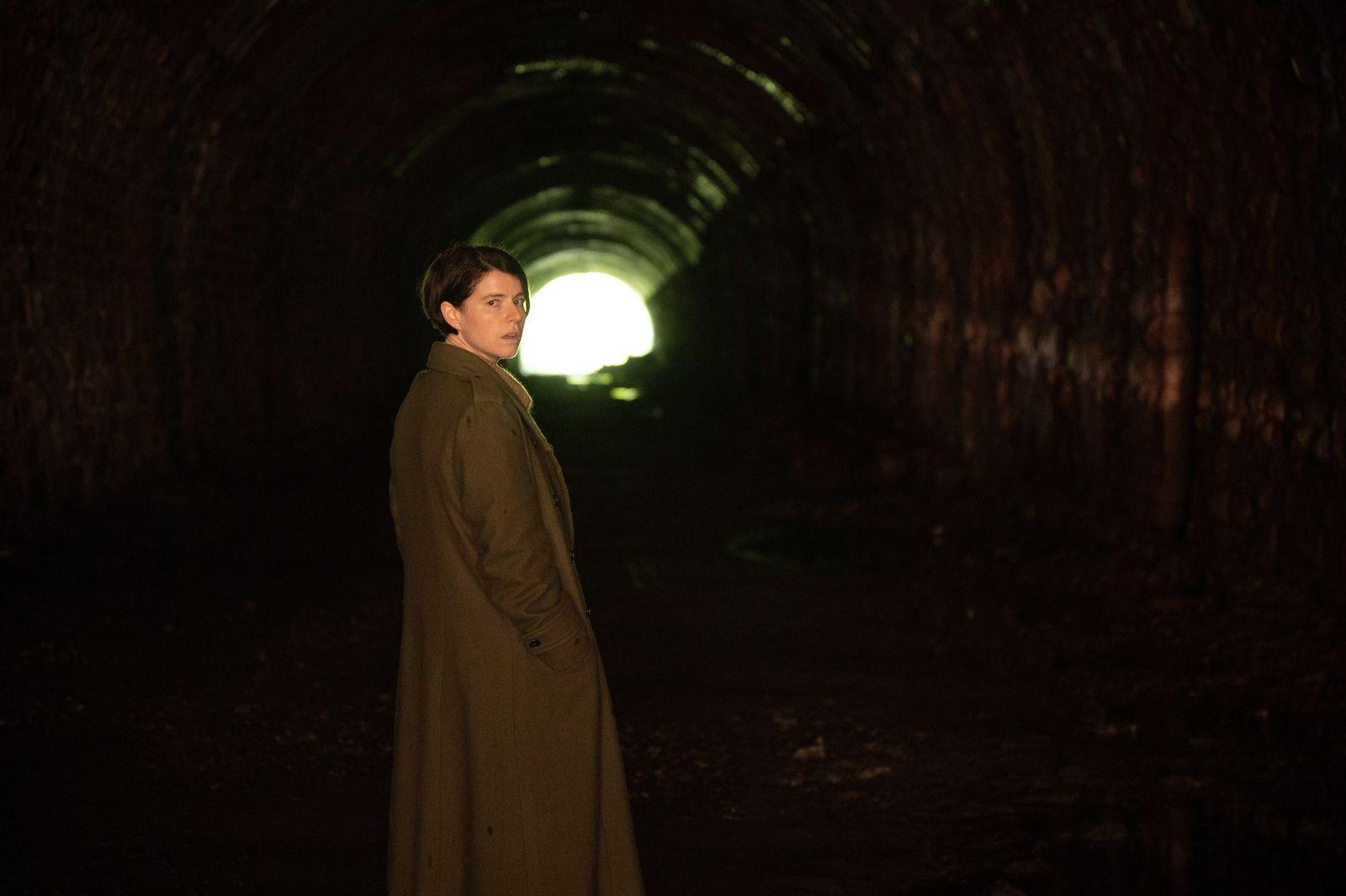Depending on whom you ask, modern men are either suffering a crisis of masculinity or they wield more power than ever. In his tricky psycho-sexual horror film Men, writer-director Alex Garland explores both angles, suggesting that men don’t know who they are anymore, which only leads them to act out in disastrous ways, locked in a state of radical insecurity that’s creating a nightmare for women. Even if he offers no clear solutions to this crisis, he throws his full weight into exploring it. Just be warned that the path he cuts is a thorny one.
Jessie Buckley plays Harper, a young woman who escapes to a glorious English country house in the hopes of healing after her husband’s suicide. But the place is strange from the start. The house’s owner (Rory Kinnear), red-faced and jolly in a passive aggressive way, greets her at the door and shows her around, flashing his enormous choppers as he warns her about the house’s ancient plumbing: “Ladies, do watch what you flush.” He also makes nosy queries about her marital status. As soon as he leaves—phew!—Harper goes for a walk in search of solitude.
For a few minutes, she finds it, reveling in the nearly fluorescent spring green of the trees, the patter of sudden raindrops, an echoey stone tunnel that amplifies both her voice and her relief at finally being alone. But then she sees a man—or just the vague form of a man—running toward her from the tunnel’s far end. She flees, eventually reaching the house and its seeming safety. Later, she’s horrified to find a naked man peering in at her from the house’s enormous windows. She calls the police, who arrest him. And that, she thinks, is that.

Until she meets a country vicar who at first seems eager to soothe her troubled heart, only to turn on her by asking what she might have done to cause her husband’s suicide. And then a schoolboy with mean little eyes who tries to cajole her, menacingly, into a game of hide-and-seek. Who are these terrible country people, anyway? All the while, Harper is haunted by memories of her dead husband (played by Paapa Essiedu), recalling how he’d threatened to kill himself when she’d told him, with good reason, that she was leaving: “You’ll have to live with your conscience.”
A rotting deer, its eye socket viewed as a maggoty cosmic swirl; a church lectern with your standard traditional Green Man adorning one side and a lewd, anatomically suggestive female figure carved on the other; a terrifying development involving an ordinary, if not so subtly symbolic, mail slot. What does it all mean? Garland’s third feature as director—following the ambitious and unsettling artificial-intelligence drama Ex Machina, and the less effective sci-fi parable Annihilation—is a disquieting picture with a chilly heart, a movie that makes harsh pronouncements about how vile men can be, even as it occasionally sounds a note of tenderness for these poor, misguided creatures.
Because if Men has a point at all, it’s that women are the stronger, more resourceful sex. Buckley is terrific as a woman who faces her fears outright, refusing to be cowed by male bullishness—she’s both resolute and believably vulnerable. Garland is careful, too, to neither fetishize nor trivialize her terror. We’re on her side every minute. When she grabs a kitchen knife in self-defense, you’re likely to feel your own hand closing around a handle.
And perhaps without intending to, Garland has hit on an all too timely truth: that men seek to control women as a response to their own self-loathing. Even if you walk out of Men not knowing what to think, the movie brings you to a place where feeling overtakes thought. The shiver that comes over you may be one of recognition or melancholy or a muddle of both, as you stand at the edge of where a movie ends, blurring into real life.
More Must-Reads from TIME
- Cybersecurity Experts Are Sounding the Alarm on DOGE
- Meet the 2025 Women of the Year
- The Harsh Truth About Disability Inclusion
- Why Do More Young Adults Have Cancer?
- Colman Domingo Leads With Radical Love
- How to Get Better at Doing Things Alone
- Michelle Zauner Stares Down the Darkness
Contact us at letters@time.com